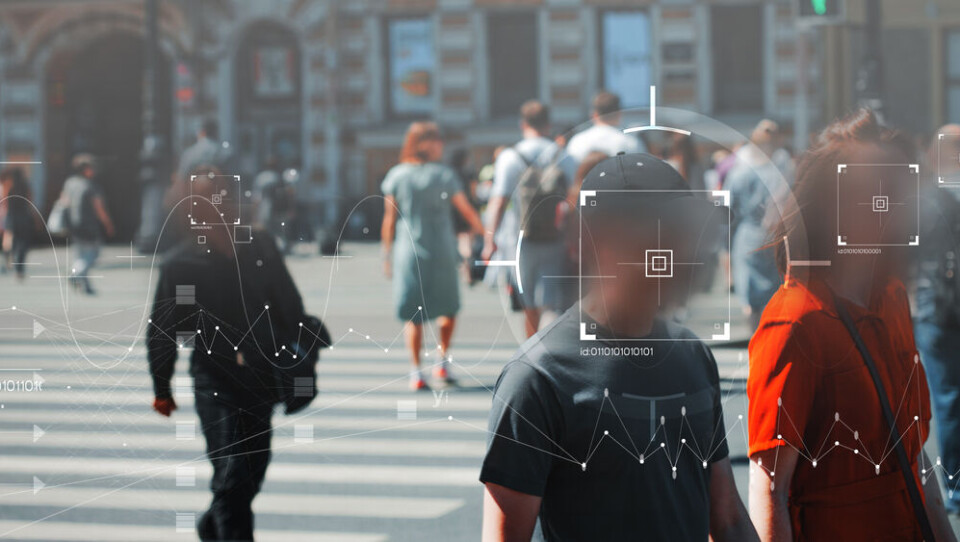-
Dates 2026: Family allowance payments and other French benefits
The payment date varies if it falls on a weekend
-
Dordogne villages suffer burglaries: How to protect your property
A series of break-ins have been reported over the Christmas period
-
‘It’s the place we are happiest’: George Clooney and family become French
‘My kids have a much better life [and] speak perfect French’, the Hollywood star says
Facial recognition: Senators set out rules for trial in France
Warning of the ‘British example’ and lessons learned from CCTV usage in the UK cited in related report on senate website

Three French Senators have this week presented a new report on facial recognition software that calls for the necessity to create a strong legal framework for its usage.
They suggested running a three-year-long trial to test how best the technology can be used and what laws should be brought in to control its usage.
The report by Marc-Philippe Daubresse (from the right-wing Les Républicains), Socialist Jérôme Durain and Arnaud de Belenet (Union centriste) includes around 30 suggestions on the technology and a plan for trialling it safely.
During a press conference, the trio stated that the technology would be used on “a case by case basis, with geographic and time limits”.
They also stated that “80% of our report is dedicated to red lines [limits]” on the use of the technology, to ensure it does not infringe on the data privacy or freedom of the public.
These ‘red lines’ are designed to “remove the risk of a surveillance society” and “ensure the monitoring and evaluation of experiments carried out".
The three-year trial would set out the conditions under which biometric recognition could be used.
Senator Durain said: “It would be an experimental law, for restricted, controlled, and supervised cases.”
Examples include barring certain people from specific venues based on centralised police lists (such as the fichés S threat to national security list), and systems such as “intelligent video surveillance to search for abandoned packages” in train stations or airports, for example.
Senator Daubresse said: “[There will not be] surveillance all the time, and not on a large scale.”
He also told French news channel Public Senat that the draft bill outlining this experimentation phase could be submitted to parliament this autumn.
Facial recognition software has been controversial in France. Critics suggest that it could threaten personal privacy and that it will be difficult to hold back the tide of the technology once it is allowed.
A 2019 French law – which emerged following a European Union directive – already says a person’s biometric data can only be used without the person’s consent in situations of “absolute necessity”.
Warning of the ‘British example’
A related report warning about the lessons learned from CCTV usage in the UK was also published today (May 13) on the French Sénat’s website.
It stated that the UK is a good example to look at due to the “extent of its [video surveillance] network and the number of CCTV cameras”.
It cited a 2005 study by the UK’s Home Office Research, Development and Statistics Directorate, that concluded that the “question is not necessarily whether video surveillance works, but in what conditions it can be effective”.
The 2005 UK study states:
“Too often CCTV has been judged on its ability to reduce crime rates, and often this will not be the best way of judging it.
“CCTV can, if properly designed and implemented, generate images, but unless the police and the criminal justice process make good use of them, then they will be of marginal value, and are certainly not likely to achieve major impacts.
“Too much must not be expected of CCTV.”
The use of CCTV images as evidence is admissible in French civil law, but it depends on how the images were obtained. For example, an image taken from an unauthorised camera cannot be used as evidence in court.
It is also up to the judge to assess the reliability of the evidence, with the quality of the image decisive in this respect.
The French Senate’s report today concludes:
“Even if a recording cannot be used as evidence, it does not make it irrelevant. It remains an important investigative tool to guide the investigation, for example, into the circumstances of an assault or the clothing of a suspect.
“Although it may not constitute judicial evidence, video surveillance can contribute to the search for such evidence.”
Facial recognition at the Paris Olympics?
The report presented by the three French senators earlier this week also mentions the importance of considering facial recognition technology during the 2024 Summer Olympics that will take place in Paris in July and August of that year.
Mr Daubresse said the goal is to avoid terrorist attacks, such as the one that caused the deaths of 86 people in Nice in 2016 when a lorry was deliberately driven into crowds of people along the city’s promenade.
“Imagine if we had ten or 15 attacks like the Promenade des Anglais during the Olympics?” Mr Daubresse said.
“I say that we need tools, but that they must be controlled and regulated, with red lines. That is what we propose in this report.”
He admitted that it will be difficult to have a debate about facial recognition technology while France remains in a period of elections – the presidential elections ended in April and the vote for MPs (the legislative elections) will take place in June.
You can read the senators full report, including the 30 propositions,here (in French).
Related articles
France set to test facial recognition security cameras
Civil liberty groups question facial recognition France tech rollout
























